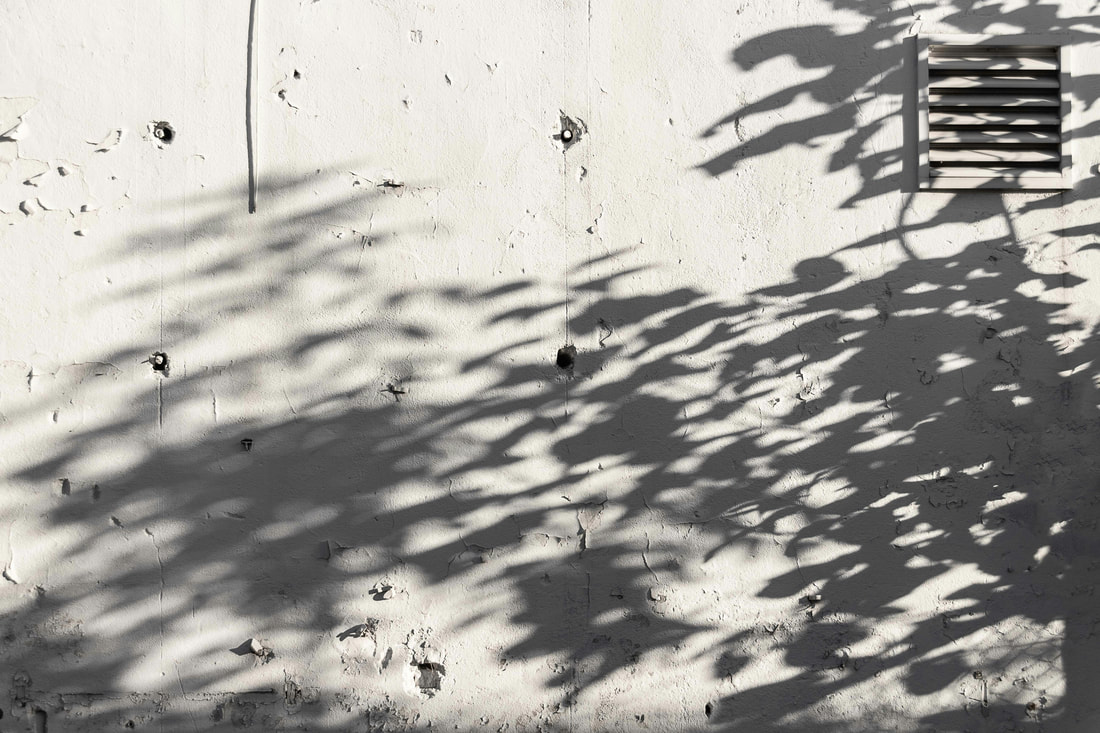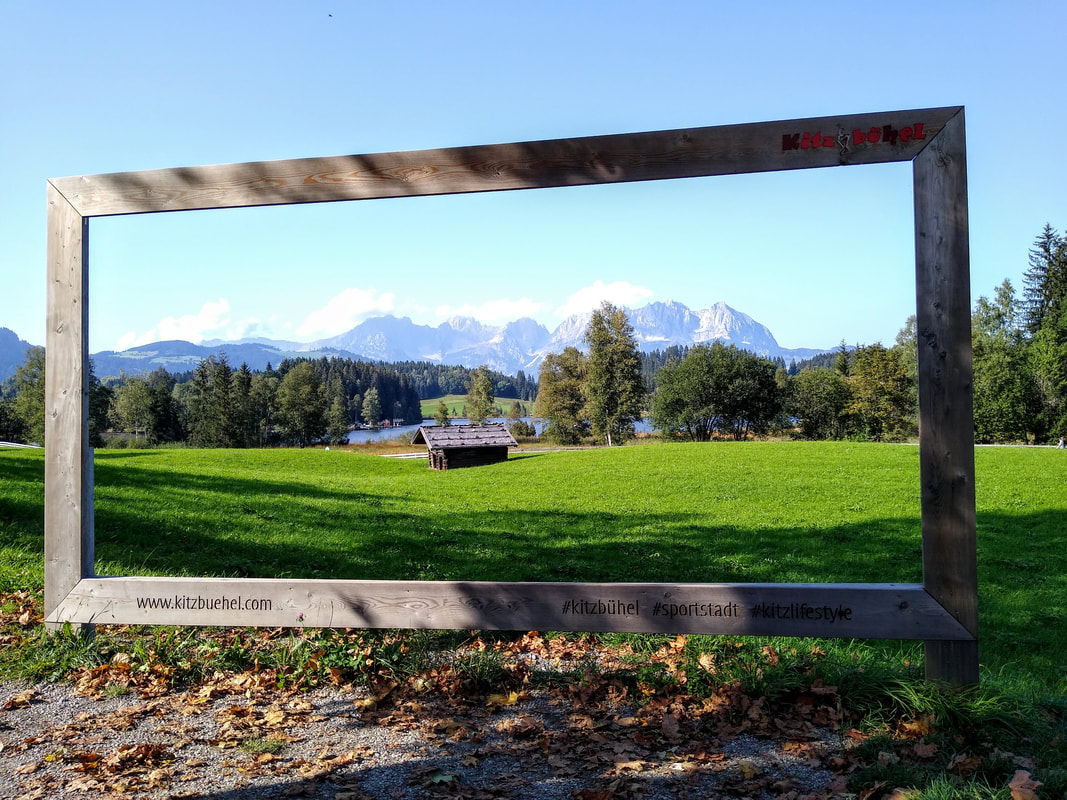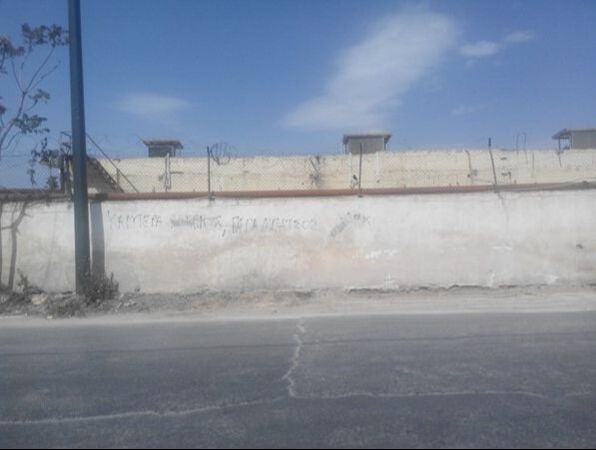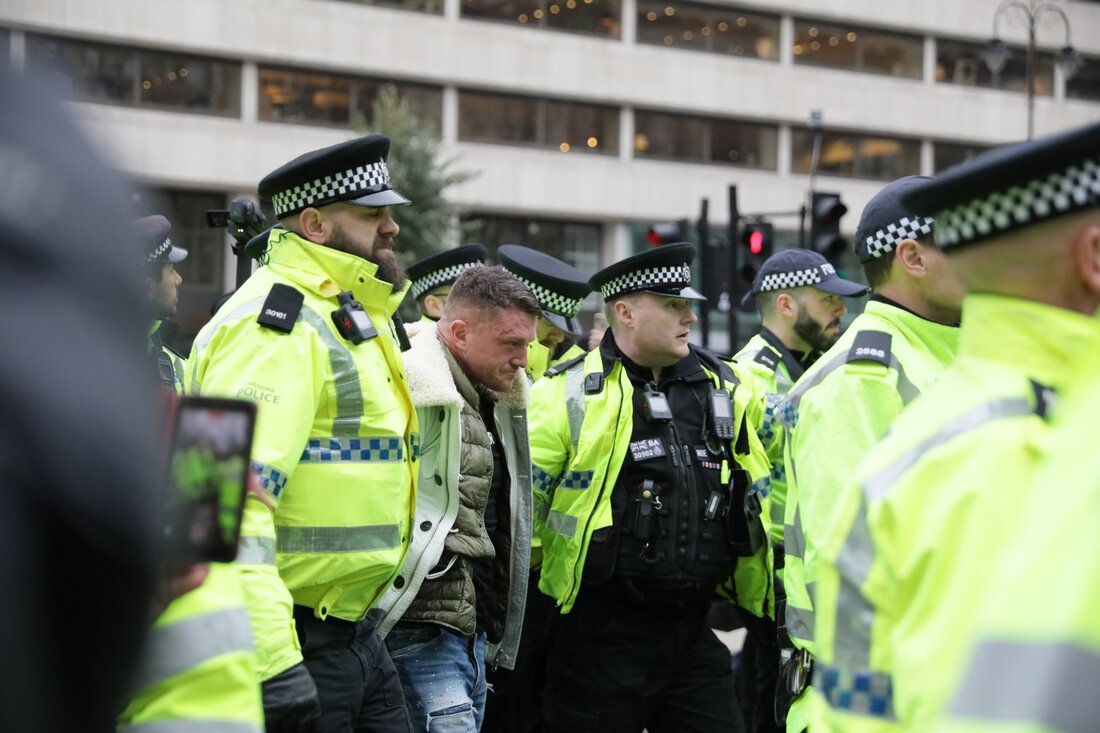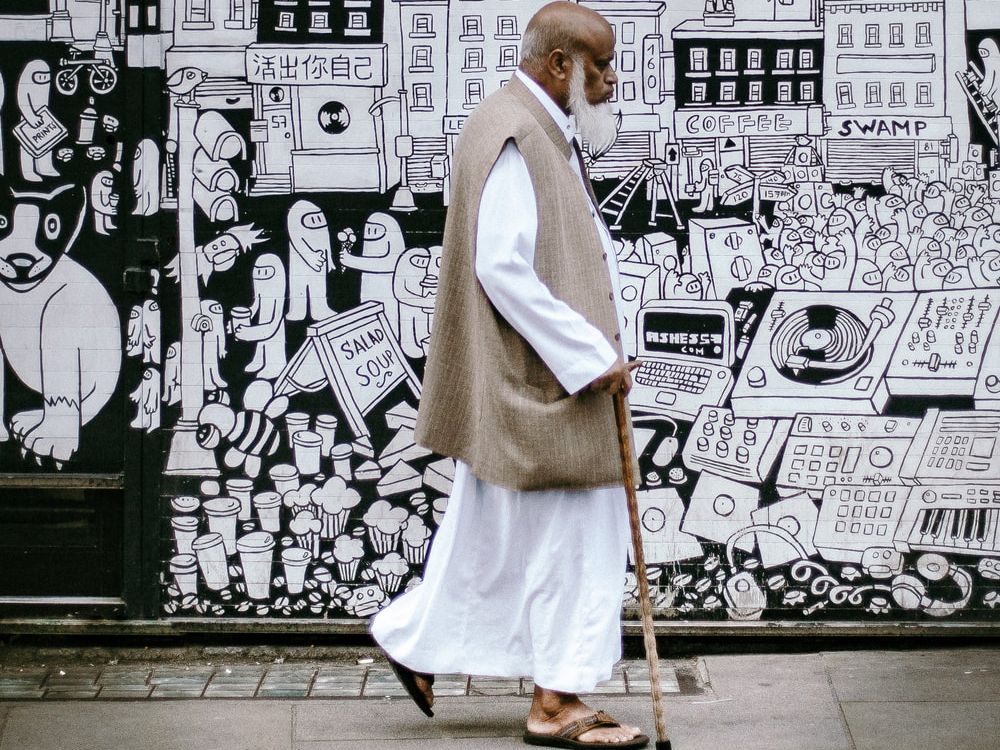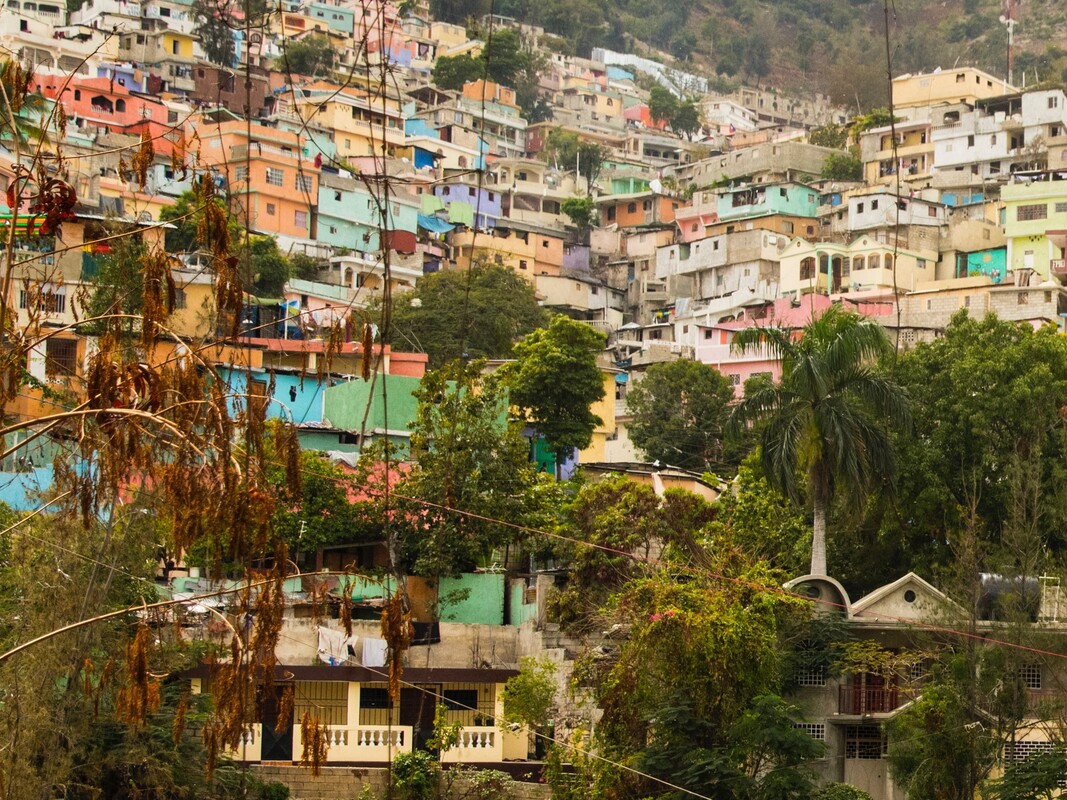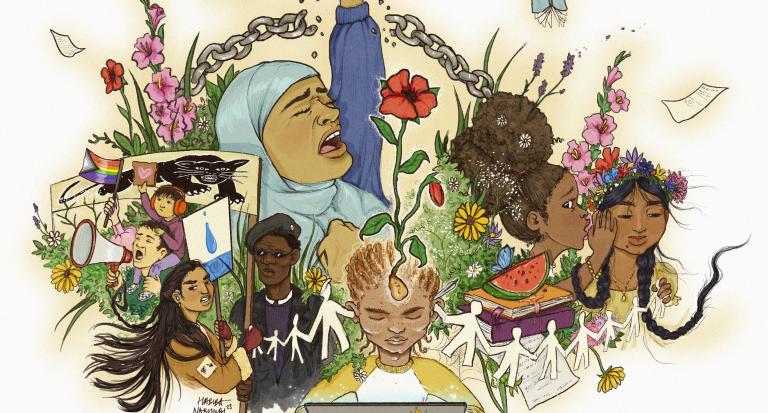|
|
|
Blog post by Shereen Fernandez, London School of Economics, UK
Right now in the UK, the topic of ‘extremism’ is once again gripping public consciousness. On 14th March 2024, Michael Gove MP, the communities secretary, unveiled a new government definition of extremism, which is: ‘the promotion or advancement of an ideology based on violence, hatred or intolerance, that aims to:
The unveiling of this new definition of extremism aims to target groups and individuals who, if defined as an extremist, will be blocked from engaging in government, working in public bodies, and receiving council grants. Extremists are not considered as lawless per se, meaning that they cannot be prosecuted but instead, are considered to be ‘unacceptable’ by government. Of course, any designation of extremism will have a direct impact on how such groups and individuals can operate in other spaces of significance, such as in religious institutions, where claims of hosting ‘extremists’ will set them back significantly. As shown in my Identities article on Prevent in schools, ‘When counter-extremism ‘sticks’: the circulation of the Prevent Duty in the school space’, the label of ‘extremism’, for Muslims especially, is part of a long trajectory dating back to 9/11 which saw their significant securitization globally as a result of labels like this.
0 Comments
Kashmiri solidarity with Palestine and the ongoing situation in Gaza is currently being silenced by Narendra Modi’s BJP. For decades, the ongoing resistance between Kashmiri civilians and Indian security forces in the Kashmir Valley (particularly Srinagar) has drawn inspiration from the Palestinian struggle (particularly in Gaza) and the two situations have often been compared and contrasted. However, since October 2023, the solidarity that Kashmiris have towards Palestine and the ways in which it is expressed has changed because of the clamping down of Modi’s BJP and his security forces. This short piece provides insight into two aspects of Kashmiri solidarity with Palestine. Firstly, it looks at why Kashmiris are willing to risk their own safety to stand in solidarity with Palestinians in Gaza. Secondly, it explores exactly what this solidarity looks like and examines how Kashmiris are finding alternative ways to resist such silencing that may not be through street demonstrations, but instead using the mediums of art and poetry. The piece considers the following questions: why do Kashmiris stand in solidarity with Palestine? What are the consequences that Kashmiris face through this solidarity? Why does Modi silence Kashmiris when it comes to Palestine?
Blog post by Fraser McQueen, University of Bristol, UK
Anxieties were running high on Sunday as French voters went to the polls in the second round of this year's legislative elections. At a time of rising support for the far right across Europe – and with France's current centrist administration having already passed hard-line anti-Muslim and anti-migrant policies – most observers believed that the far-right National Rally (RN) would emerge as the nation's strongest party. An overall majority seemed unlikely, but possible. The eventual result was very different: a shock victory for the left-wing New Popular Front (NFP). The RN and its allies finished third, with the 'centrist bloc' composed of President Emmanuel Macron's party and its allies coming in second. The far right was kept out through a resuscitation of what was historically labelled a 'Republican front'. As the second round of voting approached, an unprecedentedly high number of three-way contests in various constituencies looked likely. Many (although not all) candidates from either the left or centrist blocs therefore stood down, asking their first-round supporters to support an opponent better placed to beat the RN.
Blog post by Nasar Meer, University of Glasgow and co-Editor of Identities: Global Studies in Culture and Power
One of the subplots emerging from the 2024 General Election is to be found in talk of the ‘Muslim vote’. This is said to have been mobilised against the Labour Party, in protest at its position on Gaza, in constituencies with a sizable Muslim electorate. The success of Independent candidates such as Shockat Adam, a local resident in Leicester South who overturned a 22,000 majority of the incumbent shadow cabinet member Jonathan Ashworth, certainly came as a surprise. While prevailing MRP (multi-level regression and post stratification) models generally proved accurate in translating polling data into seat predictions, with some exceptions, they also reproduced a longstanding problem about the under polling of minority groups, which elsewhere missed that 23-year-old first time campaigner Leane Mohamed would in Ilford North come within 528 votes of unseating the new Health Secretary, Wes Streeting.
Blog post by Aino Korvensyrjä, University of Helsinki
In the first week of May 2018, there was some moral panic in the German media. National and regional media reported on a ‘mob’ of 150–200 black Africans violently stopping deportation and attacking the enforcement patrol in a reception centre for asylum seekers in Ellwangen, Baden-Württemberg. After the 2015 ‘Summer of Migration’, when popular sympathies for refugee-migrants had peaked in Germany, such narratives of dangerous black and brown refugee-migrant men were a standard feature in the German media and public debate. This continuous panic created public acceptance of deportations of asylum seekers and the increasingly ruthless control policies at external EU borders. My Identities article, ‘Criminalizing black solidarity: Dublin deportations, raids, and racial statecraft in southern Germany’, looks beyond the media and policy debate on ‘Ellwangen’. It examines how the police and courts managed local conflicts over deportation during an intense campaign to increase so-called Dublin deportations. These are deportations to the first country of entry in Europe. For the authorities, a fingerprint registered into the EURODAC database by another European country is enough to begin the deportation proceedings. West Africans were then a key target group of Dublin deportations, and Italy was the main country of destination. The article draws attention to a series of police raids targeting West African migrants living in southern German asylum camps in 2018, including the above-mentioned raid in Ellwangen. In all cases, police accused West African men of rioting against deportation enforcement to Italy, and local courts prosecuted numerous individuals. My article explores how the police and local courts thus suppressed anti-deportation protests and how their practices produced race.
Blog post by Christian Lamour, Luxembourg Institute of Socio-Economic Research, Luxembourg
Late modernity in the European Union is characterized by the return of ‘hot nationalism’, with a growing number of citizens supporting radical right parties and leaders. These political entities and personnel have hammered out an electoral winning, ‘nation-first’ agenda, which is notably marketed as protecting the cultural identity and cohesion of a national people, jeopardized by alien threats. This vivid return of national cultural identities in the agenda of European states has appeared at a time when relationships between EU member states have been remarkably peaceful for generations, whereas their main long-term heritage has been the reproduction of national conflicts, territorial gains and momentary stabilization of borders following treaties torn apart in subsequent wars. The cultural enemies defined by today’s EU radical right within specific nation states are not neighbouring nations, but communities, the identities of which are represented as external to the world of nations. This means the elites are characterized as Europeanized/globalized, whilst the non-European migrants are racialized as oriental/African entities replacing the European national identities with the support of the globalized elite.
Blog post by Siow-Kian Tan, Xiamen University, Malaysia
Food has the incredible ability to bring people together, yet it can also stir up debates over its origins. Dishes like Laksa, Nasi Lemak, Bak Kut Teh (BKT), Hainanese Chicken Rice and other local favourites have been passionately claimed as national dishes by both Malaysians and Singaporeans. This culinary dispute isn’t new. Back to 2009, Malaysia’s then-tourism minister, Ng Yen Yen, sparked controversy and patriotic fervour in both neighbouring countries by suggesting that Malaysian cuisine had been ‘hijacked’ by others. Each side adamantly defends dishes like nasi lemak, BKT and chilli crab as authentic and original, and criticizing the other of appropriating culinary heritage. However, are such disputes meaningful and can a dish genuinely belong to a single nation? In 2023, Channel News Asia’s ‘On The Red Dot’ programme delved into these questions, interviewing chefs, hawkers and heritage experts to uncover the origins and stories behind iconic dishes like chili crab, BKT, nasi lemak and cendol. Hosted by Ming Tan, a chef and culinary consultant, this captivating series explores how dishes evolve and travel across borders.
Blog post by Revital Madar, European University Institute, Italy
At the time of writing this text, more than 30,000 Palestinians have been killed by the Israeli army in Gaza since Hamas attacked the south of Israel on October 7, 2023. It’s a number that one cannot really grasp. Yet, it is a number that spreads terror. Especially when it indicates that this number includes the killing of more than 12,000 children and that, as terrible as these numbers are, they do not include those who were buried under the rubble and people who died because they didn’t have access to medical care and simple essential nutrition and drinking water. Yet, according to a poll conducted in the middle of January this year, 51% of Israeli Jews consider the Israeli army to be using an appropriate amount of force in Gaza. Another 43% consider the current attack on Gaza not enough, force-wise. A more recent poll (February 12-15, 2024) found that nearly 70% of Jewish Israelis do not support transferring humanitarian aid to Gaza, even if this aid is transferred by international bodies that are not related to Hamas or UNRWA.
Blog post by Anne-Iris Romens, University of Milan-Bicocca, Italy, and Francesca Vianello, University of Padua, Italy
In the context of the hardening of the political discourse, skilled migrations are presented as one of the few remaining acceptable ways of entering European countries. A recent example is the parliamentary debate in France regarding the adoption of the increasingly restrictive law on immigration, which further limits access to residence permits and social rights. Despite this rhetoric, the knowledge and skills of migrants are rarely valued in the job market. Migrants are mainly forced to accept jobs which enjoy little social recognition. Migrant women, in particular, tend to be confined to low-pay jobs in the care sector, including when they hold university degrees. These examples illustrate the ambiguity of the concept of ‘skills’. The notion works as a social marker according to which some bodies are marked as skilled, and others as unskilled, with class, racialization and gender having a significant impact. In this field, recruiters have a key role in defining whose abilities are to be compensated and whose are to be hidden.
Blog post by Ece Yoltay, Ahi Evran University, Turkey
My Identities article, ‘Queering trialectics among space, power, and the subject: spatial representations and practices of othered identities in Turkey’, is grounded in a critical analysis of the Foucaldian conceptualization of the relation between power and the subject. It does so by examining the construction of the concept of ‘supra-identity’ with the Repressive and Ideological State Apparatus in Turkey. Since the Republic of Turkey was established as a nation-state in a predominantly Muslim society, various legal and social regulations determining state-citizen relationships have been shaped in its political history (single-party period 1923-1946, multi-party period 1946-2018, Presidential system 2018-present). While each government in this history produces its own political interpretation of the 'ideal' citizen, the emphasis on Turkish and Muslim identities, particularly within the heteronormative social structure associated with Islam, has been common value for defining ‘supra-identity’. In Turkey's multicultural society, homogenizing differences over these identity values of the 'majority' has been deemed necessary for the 'unity of the state'.
Blog post by Ioana Vrabiescu, Vrije University Amsterdam, Netherlands
In my Identities article, ‘Detention is morally exhausting’: melancholia of detention centres in France’, I invite the reader to reflect on two main issues: the perceived role of the law and the legal system and how these perceptions are translated into the organization of migration control. The perception of the law as fundamental to the state practices allows people to continue working alongside the migration control apparatus despite their beliefs that the law is not perfect. The tension in this context lies in the interplay between the perceived fundamental role of the law in the functioning of the state and individual beliefs about a deficient legal system. Despite these beliefs, individuals continue to work in the migration control apparatus based on their understanding of the law's fundamental importance. Within the migration control apparatus, I chose migrant detention centres as those sites that best reflect these ethical frictions, resulting in an atmosphere of melancholia.
Blog post by Jakub Gortat, University of Lodz, Poland
German–Austrian relations and specifics of Austrian national identity appear to substantiate the assumption that the world-systems theory and centre-periphery model, elaborated on by scholars decades ago, are still applicable. Austria has often defined itself in opposition to Germany: since the end of the Second World War, Austria has taken pride in being a nation separate and distinct from Germany. This can be seen in the political declarations of the leading politicians and the narrative of the leading political parties throughout this period. To a large extent, this conviction was based on some recognizable national stereotypes and myths presenting Austria as a peaceful country with a splendid tradition and picturesque Alpine landscapes that had nothing to do with National Socialism, void of any responsibility for the crimes against Jews and other ethnic or national minorities committed under it or the war itself, which in the light of historical research undertook many years later turned out to be simply mendacious. On the other hand, the self-stereotype of an independent, cultural nation paradoxically reduced the perception of Austria abroad (including Germany) to catchy clichés about Mozart, the Habsburgs and the Viennese waltz.
Blog post by Katerina Rozakou, Panteion University of Social and Political Sciences, Greece
During my research in Greece, which forms the basis of my Identities article, ‘Ambivalent feelings: ‘filotimo’ in the Greek migration regime’, I explored ambivalent feelings that police officers demonstrate in their encounters with migrants in various sites of migration governance. Between autumn 2014 and summer 2016 I did fieldwork with state and non-state actors involved in migration in registration, pre-removal migrant detention, and open reception centres in Athens and Lesvos. Police officers in Greece are notorious for their anti-migrant and racist attitudes, and migration governance sites are infamous for their poor conditions as numerous reports by human rights organizations illustrate (Amnesty International 2014, European Committee for the Prevention of Torture and Inhuman or Degrading Treatment or Punishment 2017, Greek Ombudsman 2019). At the same time, often police officers exhibit care towards migrants, providing them with medicine, food and other goods. This care is not a matter of individual exceptions in the dominant xenophobic police feelings but related to the culturally significant sentiment of ‘filotimo’ (love of honour) that police officers evoke. The ‘goodness’ and the acts of care that police officers exhibited towards migrants them as more than mere individual exceptions in an overall culture of neglect and dehumanization (though at times this may be the case). As I claim, this care very often coexisted with violence and xenophobia, and it resonated with nativist claims to morality and moral superiority that were contrasted to the demoralization of the state the police officers embodied.
Blog post by Bridget Anderson, University of Bristol, UK and Ioana Vrabiescu, Vrije Universiteit Amsterdam, Netherlands
The European Union presents itself as a global champion of human rights, yet its external borders are marked by hostility, surveillance and death. There is also an intricate network of borders within Europe that marginalizes and excludes migrants and asylum seekers. The vast majority of those excluded at the border and within Europe are people of colour. Two contemporary developments shape the context of our Identities Special Issue, Affective Control: The Emotional Life of (En)forcing Mobility Control in Europe – the global social movement for Black Lives and the COVID-19 pandemic. They have shaped conversations on structural racism and crisis-driven migration management and exposed the intersectionality of emotions and policies. For example, the invocation of national protection measures in the context of COVID-19 allowed European states to enforce border security under the guise of health protection, emphasizing the emerging pattern of governing migration through crisis management.
Gaza, Solidarity and the Right to Protest Blog Series, Guest Edited by Alana Lentin and colleagues
Blog post by Anna Younes Dr Anna Younes is a scholar of race critical theories, using psychoanalytic approaches and post-/colonial theory. Israel is “imposing a complete siege on Gaza.
Israeli politicians, lawmakers, military personnel, as well as ordinary civilians, are talking – yet again – about Palestinians as animals: “human animals”, to be precise. For race critical scholars, or those studying genocides, it is no news that such dehumanizing language is often followed by an equally dehumanizing treatment. But what does that mean concretely for our understand of fast or slow genocide/s, and how might it propel academia to reframe our thinking around settler colonialism when viewing dehumanization through animal taxonomies?
Blog post by Nickesia Gordon, Rochester Institute of Technology, USA
The thematic focus of the July 2023 Commonwealth Parliamentary Association’s (CPA), Regional Conference on Women’s Political and Parliamentary Leadership once again underscores the need for greater equity as it pertains to women’s engagement in political leadership across the Caribbean. This event was hosted by the group, Commonwealth Women Parliamentarians from the CPA Jamaica Branch, under the theme, ‘Empowering Women in Politics and Parliament: Inspiring Leadership, Driving Change.’ As much as the title theme of the conference is telling, so too is the location in which it took place; namely, New Kingston, Jamaica, an upper middle class mixed residential and business neighbourhood populated by Jamaica’s elite.
Blog post by Aaron Winter, Lancaster University, and Co-Editor, Identities: Global Studies in Culture and Power. Cross-posted from openDemocracy.
Since the horrific Hamas attack in Israel on 7 October and Israel’s assault on Gaza in response, I have heard a great deal about how Jewish people in Britain, as well as other places, are intimidated, afraid and under threat. According to Justin Cohen of The Jewish News, “the Jewish community at the moment is full of dread, full of fear, like I've never seen before”. According to the Campaign Against Antisemitism, British Jews felt “forced to hide” during “anti-Israel” protests in London. Havering Council in London even cancelled its annual Hanukkah menorah display out of fears it could “inflame tensions”, though subsequently reversed the decision. We have also seen similar cancellations in the US.
Blog post by George Newth, University of Bath
In late December 2023, UK prime minister Rishi Sunak gifted his Italian counterpart, Giorgia Meloni, an early Christmas present: his speech at the so-called Atreju rally organized by Meloni’s far-right Fratelli d’Italia (Brothers of Italy) party, contributed to a further legitimization and mainstreaming of far-right politics in Europe. By focusing predominantly on migration, Sunak employed a racist, xenophobic and nationalist discourse. When used by mainstream politicians, such narratives hold the power to euphemize, legitimize and normalize the politics of fear and hatred promoted by the far-right. Sunak’s appearance came barely a year after Meloni’s victory in the 2022 snap elections in Italy. The results of this poll marked a watershed moment in what has been a gradual but steady normalization, mainstreaming and rehabilitation of the far-right following the end of the Second World War. Meloni is Italy’s first far-right prime minister since 1945, and Fratelli d’Italia – the leading party in Italy’s current governing majority - has roots in Italy’s fascist past. In the weeks leading up to the 2022 elections, one of Meloni’s key discursive strategies was to depict her party as ‘centre-right’ and ‘conservative’. Since then, Meloni’s self-representation as a ‘moderate’ has been helped considerably by mainstream voices; Sunak’s speech in Rome was the latest step in this disturbing process.
Gaza, Solidarity and the Right to Protest Blog Series, Guest Edited by Alana Lentin and colleagues
Blog post by Tom Six Dr Tom Six is a Reader in Politics and Performance and Head of the Research Degrees Programme at the Royal Central School of Speech & Drama at the University of London. One of the most striking features of British responses to Israel's recent genocidal violence has been the tenacity with which liberal commentators have defended it. If we are shocked by this willingness to defend the luridly indefensible, however, we should not be surprised by it. Defence of Israel's colonialism at a structural level - sometimes balanced by criticism of its more extreme advocates - is a core commitment of liberal politics and culture, rarely subjected to serious analysis, let alone challenged. I therefore offer, here, an account of a particular example of this phenomenon, the 2022 documentary play Jews. In Their Own Words, which was written by journalist and commentator Jonathan Freedland and staged at the Royal Court Theatre in London in response to incidents of antisemitism in that theatre. Reading this production in dialogue with Freedland's writing about Israel's assault on Gaza, as well as that of other liberal commentators, offers, I argue, some crucial insights into the commitments and strategies of liberal anti-antisemitism and its peculiar relationship to an Israeli state that is currently – even by its own historic standards – flagrantly illiberal. In brief, I argue that what is at stake in liberal accounts of contemporary antisemitism has been widely misdiagnosed. The issue is not so much that exaggerated accusations of anti-Jewish racism are 'weaponized' for political gain, as is widely asserted, but is a criticism so generalizable that it fails to illuminate this particular context very much. More specifically, responses to antisemitism have been widely constructed by liberals so as to constitute plausibly deniable support for Israel. By analysing this strategy of liberal Zionism, we can more accurately critique its attempt to erase colonialism from considerations of Israel, and thus to defend the indefensible.
Blog post by Fatima Rajina, De Montfort University, UK
When we think about Muslim clothing, often our immediate thoughts turn to Muslim women and their sartorial choices. Much of this has been framed via the media because of its incessant coverage, focusing on many European countries and their legislation monitoring Muslim women's clothing choices. This very discussion is in the press currently, as France has banned wearing the abaya in schools for young Muslim girls. It is precisely this framing that made me think about where Muslim men fit into this equation. How do Muslim men choose what they wear in public? What informs their decisions? As a result, in my Identities article, 'British Muslim men and clothes: the role of stigma and the political (re)configurations around sartorial choices', I diverted from the fixation on Muslim women and interrogated the political imagination and (re)configuration of dress practices among British Bangladeshi Muslim men. I selected three attires, the lungi, the funjabi and the thobe, because of what they represent for Bangladeshis. The lungi and funjabi, although associated with Bangladeshis, carry different meanings in the diaspora than in Bangladesh. I explore how these two garments are worn in the UK and how they (re)appear in public. In contrast, the thobe projects an Islamic universalism not afforded to the first two garbs and carries a different form of visibility. I focus on how British Bangladeshis of varying age groups interact with different forms of attire and what it means for their identity negotiation in the public sphere.
Gaza, Solidarity and the Right to Protest Blog Series, Guest Edited by Alana Lentin and colleagues
Blog post by Shereen Fernandez and Waqas Tufail Shereen Fernandez is an LSE Fellow in the Department of Sociology at the London School of Economics and Political Science. Waqas Tufail is a Reader in Criminology in the School of Social Sciences at Leeds Beckett University. The current wave of international solidarity with Palestine has faced significant backlash in Western nations primarily from politicians and media outlets, but also from within institutions. In the United States, for instance, there are countless reports of individuals being fired from their jobs for publicly expressing sentiments of solidarity with Palestinians and particularly those under siege in Gaza. On US college campuses, doxxing of students expressing sympathy towards Palestinians using billboards attached to trucks has been employed as a technique to publicly name and shame individuals. One purpose of such tactics is to inform future employers not to hire these students but more chillingly it is a strategy used to dissuade and silence others from taking such principled action. This silencing can often be violent, as demonstrated by the recent shooting of three Palestinian male students in Vermont, who were allegedly targeted for wearing keffiyehs.
Blog post by Vadricka Etienne, University of Nevada, Reno, USA
Each year, my immigrant father embarks on a summer trip to Haiti. A lump jumps into my throat as he prepares for his journey. He’s excited to return home, but I fear for his safety. This fear grows yearly, and my anxiety spikes whenever he doesn’t answer the phone. My thoughts race to the worst-case scenarios, mainly because we’ve discussed what to do if he was kidnapped. While the rising gang violence demanded that he skip his trip last year, he would not miss another. I understand because he is at peace when in Haiti. But I find myself taking deeper breaths only when he lands in Miami, making his way home. During the summer, I consumed conflicting media reports. Mainstream media catastrophized the gang terror, while Haitian content creators shared the mundane, such as dinners out on the town, demonstrating that the violence was not everywhere in the county. These contradictions encapsulate how the children of immigrants could have a fragile relationship with their parents’ birthplace as they often experience the country through the lens of others, very rarely their own.
Gaza, Solidarity and the Right to Protest Blog Series, Guest Edited by Alana Lentin and colleagues
Blog post by Rachel Solnick and Clive Gabay Rachel Solnick is a PhD candidate in the Department of Geography and Earth Sciences at Aberystwyth University. Clive Gabay is a Reader in International Politics at Queen Mary University of London.
Israel's relentless bombing of Gaza, which scholars have warned could amount to the crime of genocide, has been met with global protests. An important element of these protests has been growing numbers of individual and collectively organized Jewish protesters, many of whom identify as anti-Zionist. Across various locations, notably in the US and Germany, Jewish anti-Zionist protestors have been met with police arrest, as well as growing calls from Zionist Jews to label them as “cherem”, an old term denoting total exclusion and excommunication from the Jewish faith. Such attempts to erase Jewish anti-Zionists are not new and have regularly characterized Zionist attacks on Jews both from within the Zionist Jewish community and from non-Jewish Zionist politicians and media. While Zionism has only been a majority position within institutionalized diasporic Jewish spaces since the mid-20th century, and could be found being resisted even as late as the 1960s*, Zionist historiographies have rendered the many Jewish non- and anti-Zionist communities and movements that characterize Jewish histories almost unknown and redundant as templates for contemporary Jewish identity. At a time when there are increasing efforts to police Jewish anti-Zionism, it is vital to historicize the traditions of non-Zionist Jewish thought and mobilization.
Gaza, Solidarity and the Right to Protest Blog Series, Guest Edited by Alana Lentin and colleagues
Blog post by Ronit Lentin A retired Associate Professor of Sociology, Ronit Lentin is the author of Traces of Racial Exception: Racializing Israeli Settler Colonialism (2018). The question to be asked is… how long are we going to deny that the cries of the people of Gaza… are directly connected to the policies of the Israeli government and not to the cries of the victims of Nazism? (Edward Said, 1994) What we are experiencing here in Gaza is not a war, but a genocide… War is between countries that have militaries, weapons, and air forces. War is not waged against 2.3 million civilians who live in an area of 360 square km and have been under siege for more than seventeen years (Ruwaida Amer, 2 November 2023)
A month into the Israeli genocidal attack on Gaza, junior minister Amichai Eliahu called for dropping a nuclear bomb on Gaza, saying “Gaza has to stop existing… (Gazans) cannot live on this earth”. He later retracted, saying it was “only metaphorical.” But genocide is not a metaphor, to borrow from Eve Tuck and Wayne Yang’s essay, “Decolonization is not a metaphor”.
Blog post by Aaron Winter, Lancaster University, and Co-Editor, Identities: Global Studies in Culture and Power. Cross-posted from British International Studies Association Voices from BoisMitidja.
This piece is based on my intervention at the British International Studies Association (BISA) Colonial, Postcolonial and Decolonial (CPD) event ‘Refusing Carcerality - A Public Roundtable’ at King’s College London on 14 June 2023. It was a great event and opportunity to hear other interventions, reflect on issues, and bring together some issues and ideas I have had working in Criminology and on counterextremism, counterterrorism and the far right in relation to important discussions about carcerality and abolition. Carcerality always extends beyond what are typically seen as carceral institutions, policies and punishments, particularly in the context of abolitionist theory and activism and our understanding of the carceral state and society. I would like to return it to the prison and penal system for a moment though to discuss how differences and alternatives to the carceral are constructed, used and played off one another in the context of counterextremism, counterterrorism and Criminology in ways that can distract from and ultimately serve an unequal and unjust system. This is particularly important if our opposition to the carceral is also about opposing this system, focusing on systemic inequalities and injustices (related to but expanding beyond ‘crime’) and envisioning more radical and truly emancipatory alternatives. |
|
Explore Identities at tandfonline.com/GIDE |
|
The views and opinions expressed on The Identities Blog are solely those of the original blog post authors, and not of the journal, Taylor & Francis Group or the University of Glasgow.










